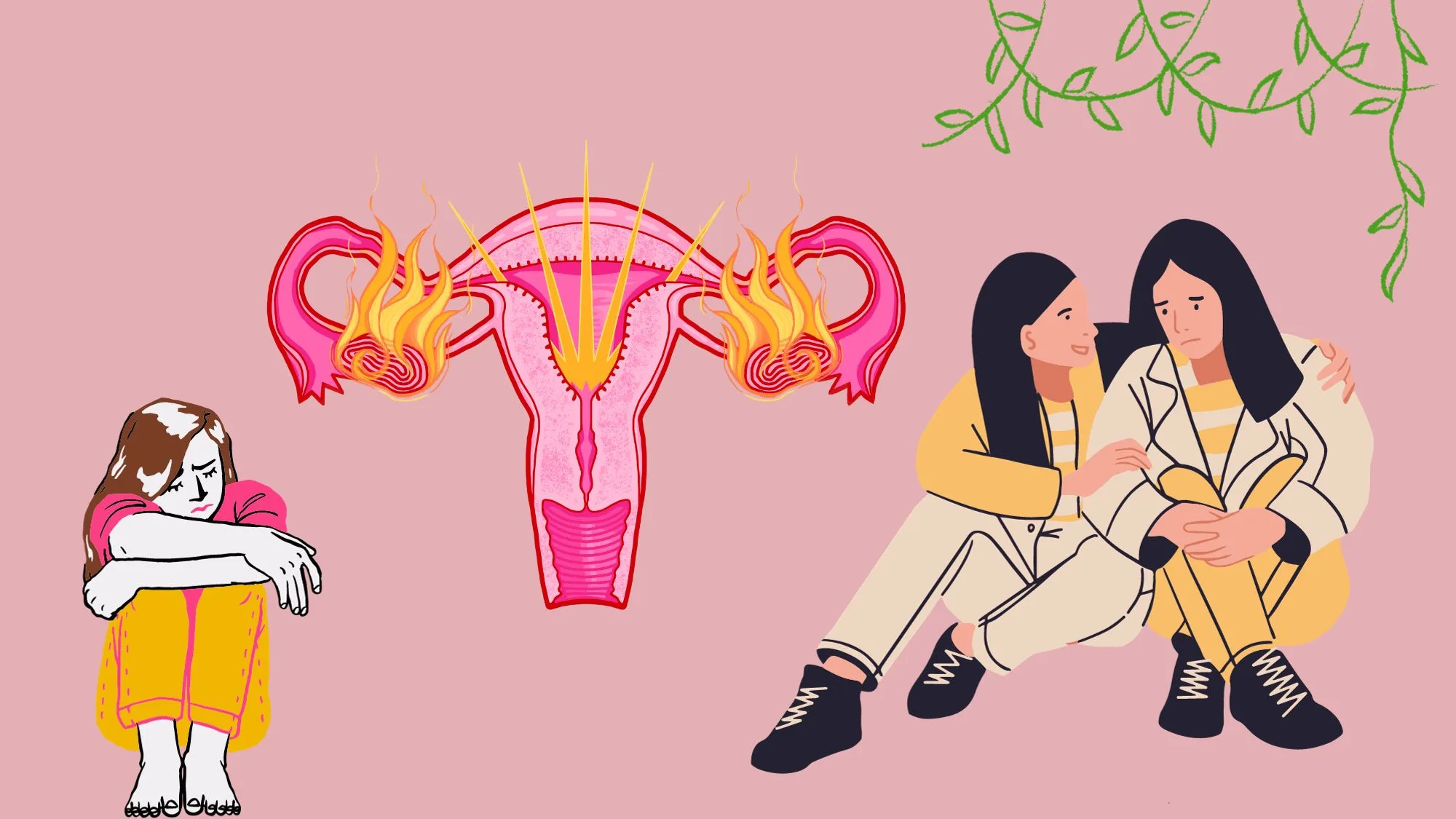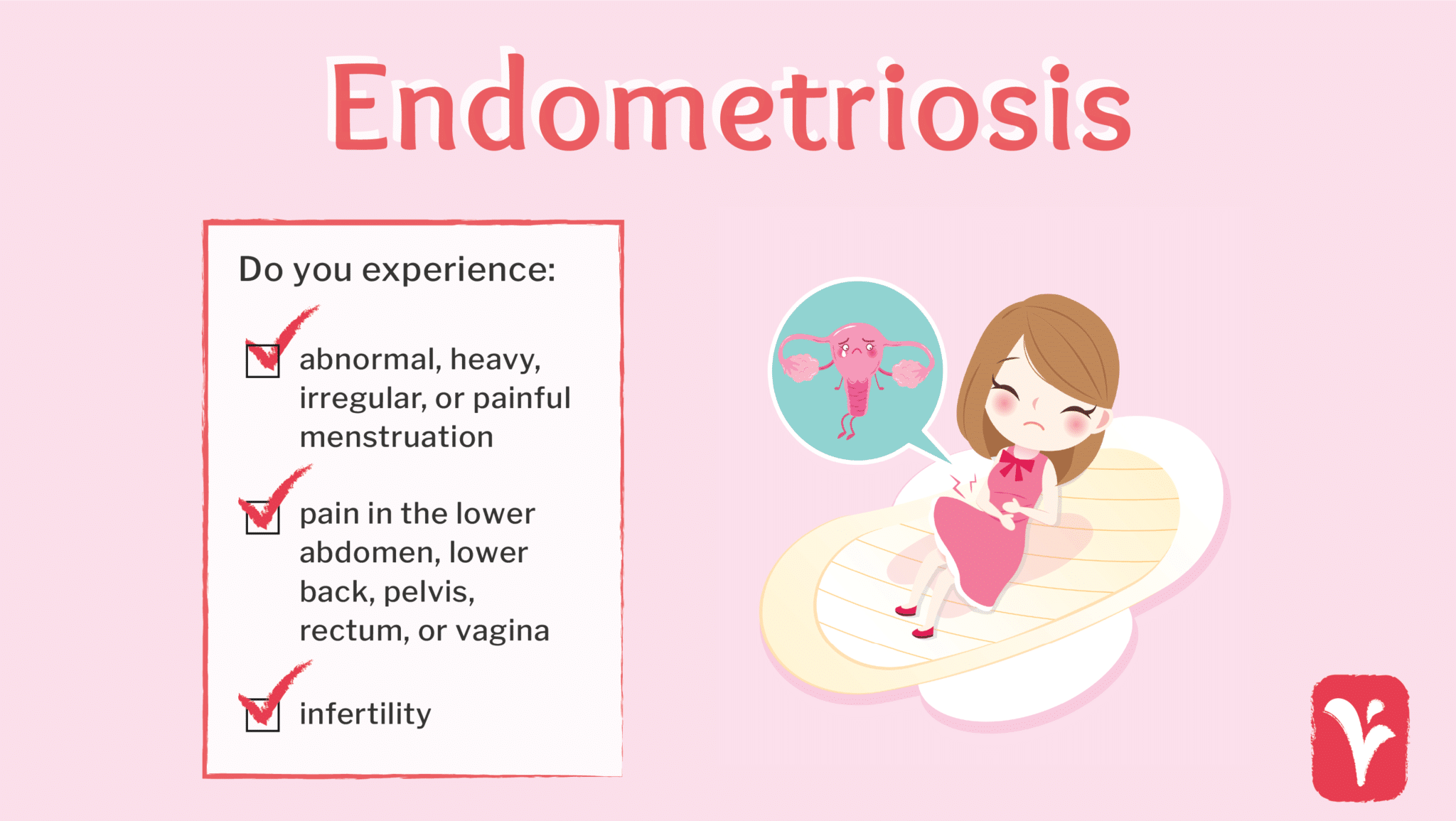
Endometriosis is a chronic gynecological condition characterized by pain and other symptoms that are influenced by various factors, including hormonal balance and inflammatory processes in the body. Although there is no single treatment method that will completely cure endometriosis, certain lifestyle and dietary changes can significantly reduce symptoms and improve quality of life.
First, it's important to maintain a balanced diet that is rich in anti-inflammatory foods. Foods high in omega-3 fatty acids, such as salmon, sardines, flaxseeds, and walnuts, are recommended because these fatty acids help reduce inflammation. You should also avoid trans fats and processed foods, which can stimulate inflammatory processes.
In addition, it is important to include foods rich in antioxidants in the diet, such as fresh vegetables and fruits, especially dark green leafy vegetables, red and orange vegetables. Antioxidants help neutralize free radicals in the body that can cause inflammation and pain.
Another important part of nutrition is fiber consumption. Fiber helps regulate bowel function, which is important because bowel health is directly related to endometriosis symptoms. It is recommended to eat foods rich in fiber, such as oats, wholemeal bread, legumes.
By paying attention to lifestyle, regular physical activity can have a positive effect. The right combination of exercise, including light aerobics, strength training, and especially yoga or pilates, helps reduce stress, improves circulation, and balances hormones, all of which can reduce pain and other symptoms.
Finally, it is important to emphasize the importance of adequate sleep. Sleep is essential for body regeneration and stress reduction. People with endometriosis should get 7-9 hours of quality sleep per night.
These lifestyle and dietary changes are not a complete cure, but they can significantly ease endometriosis symptoms and improve overall health. It is always recommended to consult a healthcare professional before making any major lifestyle changes.

Dietary changes
1. Anti-Inflammatory Foods: Inflammation plays an important role in the development of endometriosis symptoms, so foods that naturally reduce inflammation are very important. That includes:
- Omega-3 fatty acids: Fatty fish (eg salmon, mackerel), flaxseed, chia seeds.
- Curcumin: Turmeric is an excellent source of curcumin, which is a powerful anti-inflammatory compound.
- Green Tea Extract: Green tea is a good source of antioxidants that can also help regulate hormone levels.
2. Foods rich in antioxidants: Antioxidants protect cells from oxidative stress and inflammation.
- Berries: Raspberries, blueberries, black currants.
- Spinach and other green leafy vegetables: These foods are full of vitamins and minerals that support a healthy immune system.
3. Fiber-rich foods: Fiber helps maintain a healthy gut flora, which is important because gut health is directly related to immune system function and the body's overall inflammatory response.
- Whole grains, legumes, nuts and seeds are excellent sources of fiber.
Lifestyle changes
1. Regular physical activity: Proper exercise can help reduce pain and improve overall health.
- Water aerobics: Water reduces body weight and helps you perform exercises without much pain.
- Yoga and Pilates: These exercises are great for reducing stress and improving body flexibility.
2. Stress management techniques: Stress can make endometriosis symptoms worse, so it's important to learn how to manage it.
- Relaxation techniques: Breathing exercises, meditation, or simply spending time in nature can help reduce stress.
3. Quality sleep: Sleep is essential for hormone regulation and overall health.
- Forming habits: Go to bed and get up at the same time every day, reduce screen time before bed, use sleep masks or earplugs as needed to ensure quality sleep.
Consultation with specialists
It is always recommended to consult a health care professional before implementing any significant dietary or lifestyle changes, especially with chronic conditions such as endometriosis. Your treatment plan may need to be customized based on your medical condition, symptoms, and lifestyle.
The impact of endometriosis on women's emotional state and psychological health
Endometriosis is a chronic gynecological disease that affects about 10% of women of reproductive age, and its effects are not limited to physical symptoms such as pain or infertility. The disease can also have a significant impact on women's emotional state and psychological health, causing long-term increases in stress, anxiety and depression.
Psychological impact
Symptoms of endometriosis, including intense menstrual pain, pain during intercourse, chronic pelvic pain and other complications, can severely affect women's daily activities, work and social relationships, sometimes even leading to social isolation. These experienced physical discomforts and limitations naturally lead to feelings of anxiety and depression, especially when diagnosis takes time or treatment methods are ineffective in reducing symptoms.
Emotional influence
One of the most emotionally taxing consequences of endometriosis is fertility problems. Many affected women experience infertility, which can cause great grief and sadness, and sometimes strong feelings of guilt. There may also be tension in family relationships and relationships with your partner, which further complicates your emotional well-being.
Self-esteem and identity issues
Chronic pain and ongoing health problems can affect women's self-esteem and self-worth. Being sick often or not being able to do normal activities can make you feel like you're not "normal" or different from others. This can lead to emotional detachment and detachment from others.
Stress management problems
Women with endometriosis may experience increased stress, which in turn can cause or exacerbate other health problems, such as heart disease, gastrointestinal problems, and a weakened immune system. It often happens that women with this disease use inadequate stress management methods, such as excessive alcohol consumption or smoking, which can further worsen their health.
The importance of psychological support
It is important that women with endometriosis receive not only physical but also psychological support. Psychological support, including cognitive behavioral therapy (CBT), can help women cope with symptoms of stress, anxiety and depression associated with the disease. Emotional and social support from family members, friends and communities who understand and recognize the burden of endometriosis is also important.

Given these psychological and emotional challenges, it is imperative that treatment plans to manage endometriosis include a comprehensive approach that focuses on both the physical and psychological well-being of patients. Every sick woman should have access to appropriate medical care as well as psychological and emotional support resources.
Information sources
- "Endometriosis: A Key to Healing Through Nutrition"
- "The Doctor Will See You Now: Recognizing and Treating Endometriosis"
- "Endometriosis: pathogenesis, clinical features, and diagnosis"
# endometriozė






